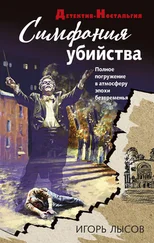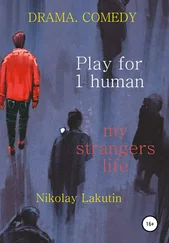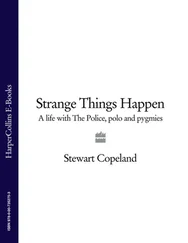Douglas Hofstadter - I Am a Strange Loop
Здесь есть возможность читать онлайн «Douglas Hofstadter - I Am a Strange Loop» весь текст электронной книги совершенно бесплатно (целиком полную версию без сокращений). В некоторых случаях можно слушать аудио, скачать через торрент в формате fb2 и присутствует краткое содержание. Жанр: Прочая документальная литература, на английском языке. Описание произведения, (предисловие) а так же отзывы посетителей доступны на портале библиотеки ЛибКат.
- Название:I Am a Strange Loop
- Автор:
- Жанр:
- Год:неизвестен
- ISBN:нет данных
- Рейтинг книги:4 / 5. Голосов: 1
-
Избранное:Добавить в избранное
- Отзывы:
-
Ваша оценка:
- 80
- 1
- 2
- 3
- 4
- 5
I Am a Strange Loop: краткое содержание, описание и аннотация
Предлагаем к чтению аннотацию, описание, краткое содержание или предисловие (зависит от того, что написал сам автор книги «I Am a Strange Loop»). Если вы не нашли необходимую информацию о книге — напишите в комментариях, мы постараемся отыскать её.
I Am a Strange Loop — читать онлайн бесплатно полную книгу (весь текст) целиком
Ниже представлен текст книги, разбитый по страницам. Система сохранения места последней прочитанной страницы, позволяет с удобством читать онлайн бесплатно книгу «I Am a Strange Loop», без необходимости каждый раз заново искать на чём Вы остановились. Поставьте закладку, и сможете в любой момент перейти на страницу, на которой закончили чтение.
Интервал:
Закладка:
In order to get across the meaning of “soap digest rack” in detail, you would have to explain, for starters, the notions of electricity and electromagnetic waves, of TV cameras and transmitters and TV sets, of TV shows and advertising, the notion of washing machines and rivalries between detergent companies, the idea of daily episodes of predictable hackneyed melodramas broadcast into the homes of millions of people, the image of viewers addicted to endlessly circling plots, the concept of a grocery store, of a checkout stand, of magazines, of display racks, and on and on… Each of the words “soap”, “digest”, and “rack” would wind up being expanded into a chain of ancient Sanskrit words thousands of times longer than itself. Your final text would fill up hundreds of pages in order to get across the meaning of this three-word phrase for a modern banality.
Likewise, Gödel’s string KG, which we conventionally express in supercondensed form through phrases such as “I am not provable in PM ”, would, if written out in pure PM notation, be monstrously long — and yet despite its formidable size, we understand precisely what it says. How is that possible? It is a result of its condensability. KG is not a random sequence of PM symbols, but a formula possessing a great deal of structure. Just as the billions of cells comprising a heart are so extremely organized that they can be summarized in the single word “pump”, so the myriad symbols in KG can be summarized in a few well-chosen English words.
To return to the Sanskrit challenge, imagine that I changed the rules, allowing you to define new Sanskrit words and to employ them in the definitions of yet further new Sanskrit words. Thus “electricity” could be defined and used in the description of TV cameras and televisions and washing machines, and “TV program” could be used in the definition of “soap opera”, and so forth. If abbreviations could thus be piled on abbreviations in an unlimited fashion, then it is likely that instead of producing a book-length Sanskrit explanation of “soap digest rack”, you would need only a few pages, perhaps even less. Of course, in all this, you would have radically changed the Sanskrit language, carrying it forwards in time a few thousand years, but that is how languages always progress. And that is also the way the human mind works — by the compounding of old ideas into new structures that become new ideas that can themselves be used in compounds, and round and round endlessly, growing ever more remote from the basic earthbound imagery that is each language’s soil.
Winding Up the Debriefing
In my allegory, both the Klüdgerot and the Alfbert supposedly have the ability to read pure PM strings — strings that contain no abbreviations whatsoever. Since at one level (the level perceived by the Klüdgerot) these strings talk about themselves, they are like Gödel’s KG, and this means that such strings are, for want of a better term, infinitely huge (for all practical purposes, anyway). This means that any attempt to read them as statements about numbers will never yield anything comprehensible at all, and so the Alfbert’s ability, as described, is a total impossibility. But so is the Klüdgerot’s, since they too are overwhelmed by an endless sea of symbols. The only hope for either the Alfbert or the Klüdgerot is to notice that certain patterns are used over and over again in the sea of symbols, and to give these patterns names, thus compressing the string into something more manageable, and then carrying this process of patternfinding and compression out at the new, shorter level, and each time compressing further and further and further until finally the whole string collapses down into just one simple idea: “I am not edible” (or, translating out of the allegory, “I am not provable”).
Bertrand Russell never imagined this kind of a level-shift when he thought about the strings of PM . He was trapped by the understandable preconception that statements about whole numbers, no matter how long or complicated they might get, would always retain the familiar flavor of standard number-theoretical statements such as “There are infinitely many primes” or “There are only three pure powers in the Fibonacci sequence.” It never occurred to him that some statements could have such intricate hierarchical structures that the number-theoretical ideas they would express would no longer feel like ideas about numbers. As I observed in Chapter 11, a dog does not imagine or understand that certain large arrays of colored dots can be so structured that they are no longer just huge sets of colored dots but become pictures of people, houses, dogs, and many other things. The higher level takes perceptual precedence over the lower level, and in the process becomes the “more real” of the two. The lower level gets forgotten, lost in the shuffle.
Such an upwards level-shift is a profound perceptual change, and when it takes place in an unfamiliar, abstract setting, such as the world of strings of Principia Mathematica, it can sound very improbable, even though when it takes place in a familiar setting (such as a TV screen), it is trivially obvious.
My allegory was written in order to illustrate a downwards level-shift that is seen as very improbable. The Klüdgerot see only high-level meanings like “I am edible” in certain enormous PM strings, and they supposedly cannot imagine any lower-level meaning also residing in those strings. To us who know the original intent of the strings of symbols in Principia Mathematica, this sounds like an inexplicably rigid prejudice, yet when it comes to understanding our own nature, the tables are quite turned, for a very similar rigid prejudice in favor of high-level (and only high-level) perception turns out to pervade and even to define “the human condition”.
Trapped at the High Level
For us conscious, self-aware, “I”-driven humans, it is almost impossible to imagine moving down, down, down to the neuronal level of our brains, and slowing down, down, down, so that we can see (or at least can imagine) each and every chemical squirting in each and every synaptic cleft — a gigantic shift in perspective that would seem to instantly drain brain activity of all symbolic quality. No meanings would remain down there, no sticky semantic juice — just astronomical numbers of meaningless, inanimate molecules, squirting meaninglessly away, all the livelong, lifeless day.
Your typical human brain, being blissfully ignorant of its minute physical components and their arcanely mathematizable mode of microscopic functioning, and thriving instead at the infinitely remote level of soap operas, spring sales, super skivaganzas, SUV’s, SAT’s, SOB’s, Santa Claus, splashtacular scuba specials, snorkels, snowballs, sex scandals (and let’s not forget sleazeballs), makes up as plausible a story as it can about its own nature, in which the starring role, rather than being played by the cerebral cortex, the hippocampus, the amygdala, the cerebellum, or any other weirdly named and gooey physical structure, is played instead by an anatomically invisible, murky thing called “I”, aided and abetted by other shadowy players known as “ideas”, “thoughts”, “memories”, “beliefs”, “hopes”, “fears” “intentions”, “desires”, “love”, “hate”, “rivalry”, “jealousy”, “empathy”, “honesty”, and on and on — and in the soft, ethereal, neurology-free world of these players, your typical human brain perceives its very own “I” as a pusher and a mover, never entertaining for a moment the idea that its star player might merely be a useful shorthand standing for a myriad of infinitesimal entities and the invisible chemical transactions taking place among them, by the billions — nay, the millions of billions — every single second.
Читать дальшеИнтервал:
Закладка:
Похожие книги на «I Am a Strange Loop»
Представляем Вашему вниманию похожие книги на «I Am a Strange Loop» списком для выбора. Мы отобрали схожую по названию и смыслу литературу в надежде предоставить читателям больше вариантов отыскать новые, интересные, ещё непрочитанные произведения.
Обсуждение, отзывы о книге «I Am a Strange Loop» и просто собственные мнения читателей. Оставьте ваши комментарии, напишите, что Вы думаете о произведении, его смысле или главных героях. Укажите что конкретно понравилось, а что нет, и почему Вы так считаете.












